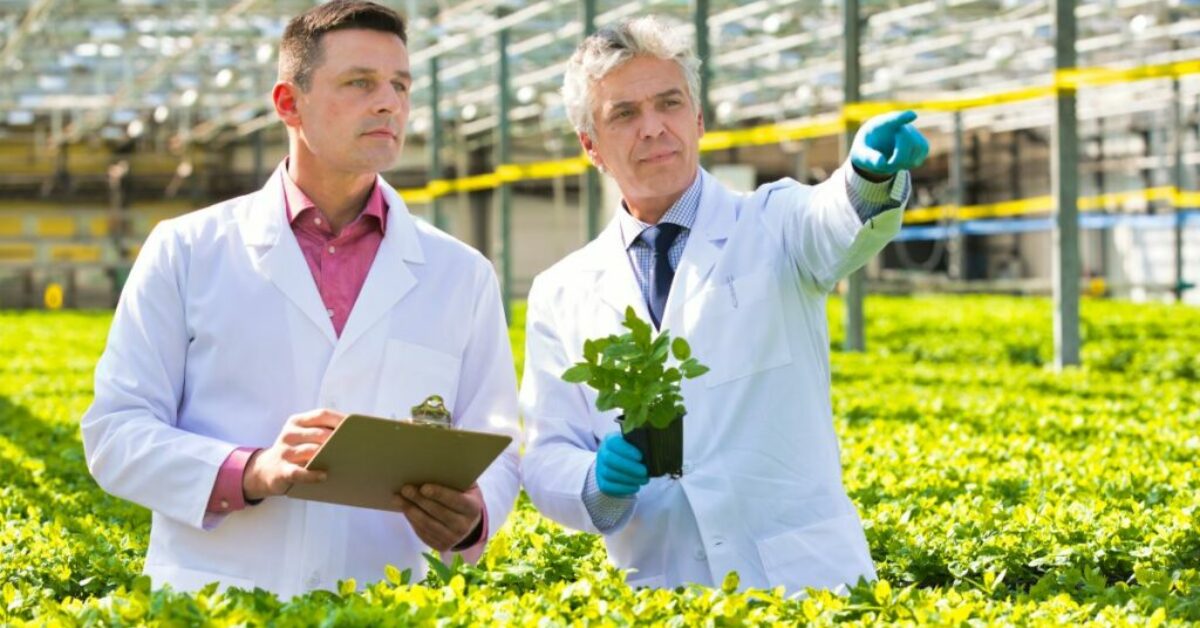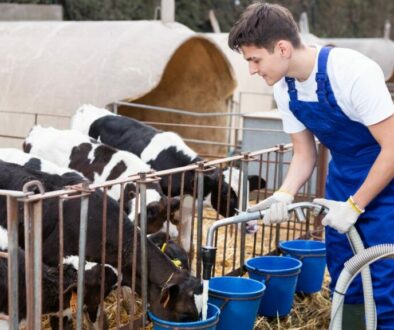How To Become A Botanist?
Botany is a fascinating field that involves studying plants, their structure, function, growth, and interactions with the environment. Botanists use various scientific equipment and techniques to learn about different plant species, their medicinal properties, potential uses, and ecological impact. If you’re interested in plants and their role in the natural world, then you may be wondering how to become a botanist. In this article, we will explore the steps, skills, and benefits of becoming a botanist.
Steps To Becoming A Botanist
The world of plants is fascinating and diverse, and a career as a botanist can be both rewarding and fulfilling. Botanists study plants and their interactions with the environment, and use their knowledge to solve problems related to agriculture, conservation, medicine, and more. If you are interested in becoming a botanist, there are several steps you can take to achieve your goal.
- Bachelor’s Degree
The first step towards becoming a botanist is to earn a bachelor’s degree in botany or a related field such as biology, environmental science, or agriculture. During your undergraduate studies, you will learn about plant structure, physiology, genetics, taxonomy, ecology, and biotechnology. You will gain practical experience through fieldwork, lab experiments, and research projects.
Botany is a broad and interdisciplinary field, and there are many subfields that you can specialize in. For example, you can focus on plant ecology and study how plants interact with their environment, or you can study plant genetics and explore the molecular basis of plant traits. You can also specialize in horticulture and learn how to cultivate plants for food, medicine, or ornamental purposes. - Master’s or Doctoral Degree
After completing your bachelor’s degree, you can pursue a master’s or a doctoral degree in botany or a specialized area such as plant genetics, conservation biology, horticulture, or plant pathology. A master’s degree typically takes two years to complete, while a Ph.D. can take four to six years. During your graduate studies, you will delve deeper into your area of interest, conduct original research, and publish your findings in academic journals.
Graduate school can be a challenging but rewarding experience, and it can open up many career opportunities in academia, industry, or government. As a graduate student, you will work closely with your advisor and other researchers in your field, and you will have the chance to attend conferences, present your work, and network with other professionals. - Practical Experience
Another important step towards becoming a botanist is to gain practical experience through internships, volunteer work, or employment in the botanical industry. Botanists can work in a variety of settings, including government agencies, non-profit organizations, universities, museums, botanical gardens, and agricultural companies. By gaining hands-on experience, you can develop your skills in plant identification, data collection, analysis, and interpretation, and learn how to apply your knowledge to real-world problems.
For example, you can intern at a botanical garden and learn about plant propagation, conservation, and education. You can also volunteer at a local nature center and lead guided hikes, teach children about plants, and participate in citizen science projects. Alternatively, you can work for a seed company and help develop new crop varieties, or for a pharmaceutical company and help discover new drugs from plant extracts.
Overall, becoming a botanist requires dedication, curiosity, and a passion for plants. Whether you are interested in studying the diversity of plant life, the mechanisms of plant growth and development, or the applications of plants in human society, there is a place for you in the world of botany.
Skills Needed to Become a Botanist
In addition to the skills mentioned above, there are several other important skills that a botanist should possess. One such skill is communication. Botanists must be able to communicate their findings effectively, both in writing and verbally. They must be able to explain complex scientific concepts in a way that is easily understood by people with varying levels of scientific knowledge. Botanists must also be able to work well in a team, collaborate with other scientists, and share their findings with colleagues.
A botanist should also possess a strong work ethic. Botany research can be time-consuming and requires a great deal of patience and persistence. Botanists must be willing to put in long hours in the field, collecting samples, and conducting experiments. They must also be willing to spend hours in the lab, analyzing data and conducting research.
Another important skill for a botanist is adaptability. Botany research often involves working in different environments, such as forests, deserts, and wetlands. Botanists must be able to adapt to these different environments and work effectively in them. They must also be able to adapt to changes in technology and research methods, as new techniques and tools are developed.
Finally, a botanist should possess a strong ethical code. Botanists must adhere to ethical standards in their research, ensuring that their work is conducted in a responsible and ethical manner. They must also be aware of the impact that their research may have on the environment and take steps to minimize any negative impact.
What is a Botanist?
Becoming a successful botanist requires a combination of academic qualifications and a range of skills. Observational ability, attention to detail, analytical and problem-solving abilities, communication skills, a strong work ethic, adaptability, and a strong ethical code are all important skills for a botanist to possess. By developing and honing these skills, botanists can excel in their field and make important contributions to the scientific community.
Botanists are an essential component of our society today, as they play a crucial role in understanding the plant world and its impact on our environment. These scientists have a deep understanding of the complexities of the plant world and the vital role that plants play in our daily lives.
One of the primary roles of botanists is to identify and classify plant species. They use a variety of techniques to examine the physical characteristics of plants, such as their leaves, flowers, and stems, to determine their species. This information is essential for understanding the diversity of plant life and how different species interact with each other and their environment.
In addition to identifying plants, botanists also conduct experiments to understand the processes that occur within them. They study topics such as photosynthesis, plant growth and development, and the effects of environmental factors on plant health. By understanding these processes, botanists can develop new techniques to improve plant growth and production, which is critical for ensuring that we have enough food to feed our growing population.
Botanists may also specialize in fields such as plant ecology, structure, or physiology. Plant ecologists study the relationships between plants and their environment, while plant physiologists focus on the internal workings of plants. Plant structural biologists examine the physical structures of plants, such as their cells and tissues, to understand how they function.
Botanists work in various settings, including academia, government agencies, museums, or botanical gardens. In academia, botanists may teach courses on plant biology or conduct research in a laboratory. In government agencies, they may work to develop policies and regulations related to plant conservation and management. Botanical gardens and museums provide opportunities for botanists to study and preserve plant species for future generations.
Botanists are an essential component of our society, and their work is critical for understanding the plant world and its impact on our environment. Through their research and experimentation, they help us to develop new techniques to improve plant growth and production, which is essential for ensuring that we have enough food to feed our growing population.
The Benefits of Working as A Botanist
Besides the love of working with plants, there are many benefits that come with pursuing a career as a botanist. Botanists play a crucial role in society by contributing to the development of new medicines, improving agriculture yields, and conserving rare and endangered plant species.
One of the most significant benefits of working as a botanist is the opportunity to advance the understanding of plant biology and its role in the ecosystem. Botanists can study the interactions between plants and their environment, including the effects of climate change on plant growth and development. By doing so, they can contribute to global efforts to mitigate climate change by developing sustainable practices for forestry and food industries.
Another benefit of working as a botanist is the flexibility of the job. Botanists can choose to work in the field, laboratory, or office-based research, depending on their interests and skills. Fieldwork involves conducting research in natural environments, such as forests, deserts, or wetlands. Laboratory experiments, on the other hand, involve conducting experiments in controlled environments to study plant growth and development. Office-based research involves analyzing data and writing reports based on research findings.
Botanists can also choose to specialize in a particular area of botany, such as plant ecology, plant physiology, or plant genetics. Specializing in a particular area can lead to more career opportunities and higher salaries.
Moreover, working as a botanist can be a rewarding experience. Botanists can see the results of their work in the form of new medicines, improved crop yields, or the conservation of rare and endangered plant species. They can also make a significant contribution to society by advancing scientific knowledge and promoting sustainable practices.
Becoming a botanist requires academic qualifications, practical experience, and several critical skills. You can become a botanist by earning a bachelor’s degree in botany or a related field, pursuing a master’s or PhD, gaining hands-on experience in the industry, and staying up-to-date with current research. A successful botanist should have excellent observational, analytical, and problem-solving skills. If you have a passion for plants, the environment, and scientific research, then a career as a botanist may be ideal for you.




